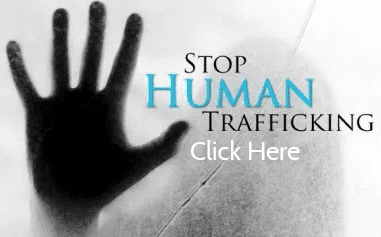Trafficking Information & Resources
Helpful Links
- Customs and Border Patrol
- Relentless
- Human Trafficking Awareness Training
- Gracehaven House
- Department of Health and Human Services Office on Trafficking in Persons
- Department of Homeland Security Blue Campaign to Fight Human Trafficking
- Department of Justice - Anti-Human Trafficking Task Force Initiative
- Department of Labor - Child Labor, Forced Labor and Human Trafficking
- DOJ List of Goods Produced by Child Labor or Forced Labor
- Human Smuggling and Trafficking Center
- Institute for Shelter Care
- President’s Interagency Task Force to Monitor and Combat Trafficking
- U.S. Department of State, Office to Monitor and Combat Trafficking in Persons
- U.S. Agency for International Development
- U.S. Department of Health and Human Services, Administration for Children and Families
- U.S. Department of Justice (USDOJ), National Institute of Justice
- USDOJ, Office of Justice Programs
- USDOJ, Federal Bureau of Investigations
- U.S. Department of Labor (DOL), Bureau of International Labor Affairs
- Wage and Hour series of videos to help workers in the US know about their rights
- White House Office for Faith-based and Neighborhood Partnerships


